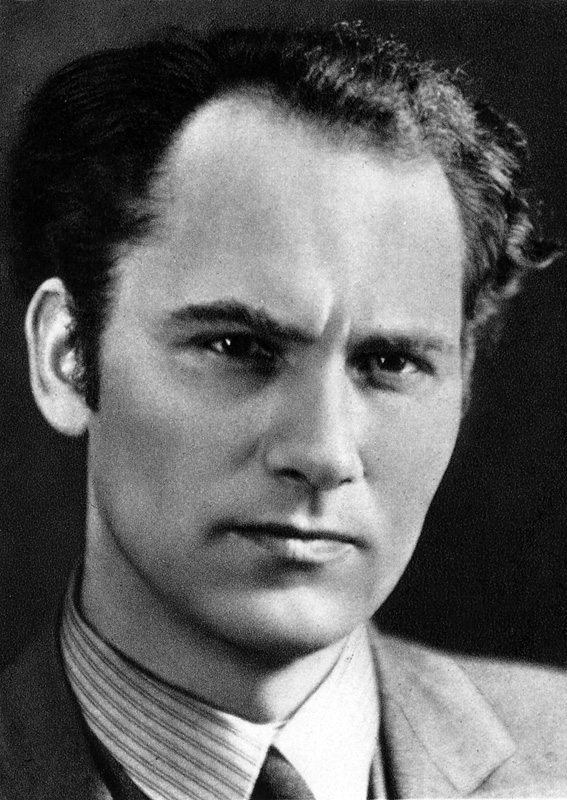Ján Poničan on:
[Wikipedia]
[Google]
[Amazon]
 Ján Poničan (pseudonym Ján Rob Poničan) (June 15, 1902,
Ján Poničan (pseudonym Ján Rob Poničan) (June 15, 1902,
 Ján Poničan (pseudonym Ján Rob Poničan) (June 15, 1902,
Ján Poničan (pseudonym Ján Rob Poničan) (June 15, 1902, Očová
Očová (, until 1899: ) is a village and municipality of the Zvolen District in the Banská Bystrica Region of Slovakia.
History
Before the establishment of independent Czechoslovakia in 1918, Očová was part of Zólyom County within the Kingdo ...
– February 25, 1978, Bratislava
Bratislava (German: ''Pressburg'', Hungarian: ''Pozsony'') is the Capital city, capital and largest city of the Slovakia, Slovak Republic and the fourth largest of all List of cities and towns on the river Danube, cities on the river Danube. ...
) was a Slovak poet, novelist, lawyer, playwright and translator.
Biography
Poničan was born in to a peasant family, his parents died when he was a child and Ján was raised by his relatives. He received his education in a Hungarian classical grammar school in Banská Bystrica and received his diploma in Lučenec. He later continued at the Technical University in Prague, but after two years he transferred to law, which he graduated from in 1927. In 1924 he joined theCommunist Party of Czechoslovakia
The Communist Party of Czechoslovakia ( Czech and Slovak: ''Komunistická strana Československa'', KSČ) was a communist and Marxist–Leninist political party in Czechoslovakia that existed between 1921 and 1992. It was a member of the Com ...
and became a member of the Davisti, a group of left-wing intellectuals and was among the founders of the ''DAV'' magazine.
Poničan began to work in Bratislava as a trainee lawyer and gave lectures on the Soviet Union. He was the head of the International Red Aid
International Red Aid (also commonly known by its Russian acronym MOPR) was an international social-service organization. MOPR was founded in 1922 by the Communist International to function as an "international political Red Cross", providing ma ...
delegation and visited Moscow and Siberia. After his return to Banská Bystrica he was convicted and imprisoned for illegal Communist activities.
The following year he was a practicing lawyer with Vladimír Clementis and a year later he opened his own law firm and represented mainly workers and communists. He practiced law until 1947, later he was secretary of the Bar Association, a public and state notary.
After 1945, he was the secretary and vice-president of the Association of Slovak Writers from 1958 to 1959, the head of the Hungarian editorial office of the Slovak Publishing House of Fine Literature, and later, until 1964, when he retired, he was the director of this publishing house.
Works
In his poems he expressed his political opinions, revolutionary and proletarian enthusiasms, but also his personal restlessness, erotic and affective motives, impressions from urban environments and also social issues. He used the melody of images, the poetic search for rhymes. In addition to poetry, prose and theater, he translated playwrights of foreign literatures, such as the RussiansSergei Yesenin
Sergei Alexandrovich Yesenin (, ; 1895 – 28 December 1925), sometimes spelled as Esenin, was a Russian lyric poet. He is one of the most popular and well-known Russian poets of the 20th century. One of his narratives was "lyrical evocations ...
and Vladimir Mayakovsky
Vladimir Vladimirovich Mayakovsky ( – 14 April 1930) was a Russian poet, playwright, artist, and actor. During his early, Russian Revolution, pre-Revolution period leading into 1917, Mayakovsky became renowned as a prominent figure of the Ru ...
, Hungarians Endre Ady
Endre Ady (Hungarian: ''diósadi Ady András Endre,'' archaic English: Andrew Ady; 22 November 1877 – 27 January 1919) was a turn-of-the-century Hungarian poet and journalist. Regarded by many as the greatest Hungarian poet of the 20th centur ...
and Sándor Petőfi
Sándor Petőfi ( []; né Petrovics; ; ; 1 January 1823 – most likely 31 July 1849) was a Hungarian poet and Classical Liberalism, liberal revolutionary. He is considered Hungary's national poet, and was one of the key figures of the Hungari ...
, and also works of Bulgarian literature.Básnické dielo davistu Jána Roba Poničana: Myslím, cítim a vidím, milujem všetko, len temno nenávidím (1923). ''DAV DVA - kultúrno-politický magazín''
Poetry
* 1923 – ''Som, myslím, cítim a vidím, milujem všetko, len temno nenávidím'' 1929 – ''Demontáž'' * 1932 – ''Večerné svetlá'' * 1934 – ''Angara'' * 1937 – ''Póly'' * 1941 – ''Divný Janko'' * 1942 – ''Sen na medzi'' * 1946 – ''Ivan Klas'' * 1946 – ''Povstanie'' * 1947 – ''Mesto'' * 1949 – ''Na tepne čias'' * 1954 – ''Básne'' * 1958 – ''Riava neutícha'' * 1962 – ''Ohne nad riekou'' * 1967 – ''Držím sa zeme, drží ma zem'' * 1972 – ''Špirála ľúbosť'' * 1973 – ''Hĺbky a diaľky''Prose
* 1935 – ''Stroje sa pohli'' * 1945 – ''Sám'' * 1945 – ''Pavučina'' * 1945 – ''Hôrny kvet'' * 1946 – ''Treba žiť'' * 1949 – ''Z čias-nečias'' * 1959 – ''Po horách-dolinách'' * 1960 – ''A svet sa hýbe'' * 1964 – ''Červená sedma'' * 1973 – ''Jánošíkovci'' * 1975 – ''Búrlivá mladosť'' * 1979 – ''Dobyvateľ''Drama
* 1924 – ''Dva svety'' * 1935 – ''Iskry bez ohňa'' * 1936 – ''Bačov žart'' * 1936 – ''Vzbura na rozkaz'' * 1941 – ''Jánošík'' * 1944 – ''Básnik a kráľ'' * 1945 – ''Vzbura žien'' * 1949 – ''Čistá hra'' * 1958 – ''Štyria'' * 1962 – ''Všetkostroj'' * ''Máje''Children's literature
* 1953 – ''Deti, deti, pozrite'' * 1979 – ''Skaza hradu''References
{{DEFAULTSORT:Ponican, Jan 1902 births 1978 deaths 20th-century Slovak writers Slovak male writers Slovak dramatists and playwrights Communist Party of Slovakia (1939) politicians Communist Party of Czechoslovakia members Czechoslovak Comintern people Slovak translators Czechoslovak lawyers Slovak communists Slovak children's writers Slovak anti-fascists